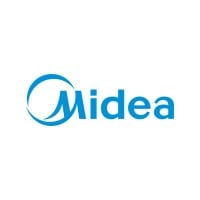
Midea Group Company Cyber Security Posture
midea-group.comMidea Group aspires to the vision of “Bringing Great Innovations to Life”, upholding the Founders’ philosophy of creating a better life through technology. Midea Group has evolved into a global leading technology company specializing in five major business areas: Smart Home Business, Industrial and Building Technologies, Robotics &Automation, and Digital Innovation. Over the past five years, we have invested over $8 billion USD in R&D and developed a global network spanning 33 R&D centers and 43 major production sites across the world. At present, Midea Group’s products and services serve more than 500 million customers in over 200 countries and regions encompassing a brand portfolio containing Little Swan, Toshiba, WAHIN, COLMO, Clivet, Eureka, KUKA, GMCC, Welling, LINVOL, and Wandong. With nearly 200,000 employees globally and more than 40,000 based internationally, Midea Group ranks 277th on the Global Fortune 500 in 2024, marking the 9th consecutive year on the list. The company holds A/A3/A credit ratings from S&P, Moody's, and Fitch respectively. Midea Group places a strong focus on technology leadership, driving innovation across global markets. Through continuous investment in "Technology Leadership, Direct to User, Digital Intelligence Driven, and Global Breakthrough," we advance our leadership in Smart Home and Smart Manufacturing while fostering talent. By providing growth opportunities in a dynamic, global environment, we empower our teams to shape the future of innovation.
Midea Group Company Details
midea
17792 employees
273011.0
335
Appliances, Electrical, and Electronics Manufacturing
midea-group.com
Scan still pending
MID_3130857
In-progress
Between 900 and 1000
This score is AI-generated and less favored by cyber insurers, who prefer the TPRM score.
 Midea Group Global Score
Midea Group Global Score.png)

Midea Group Company Scoring based on AI Models
| Model Name | Date | Description | Current Score Difference | Score |
|---|---|---|---|---|
| AVERAGE-Industry | 03-12-2025 | This score represents the average cybersecurity rating of companies already scanned within the same industry. It provides a benchmark to compare an individual company's security posture against its industry peers. | N/A | Between 900 and 1000 |
Midea Group Company Cyber Security News & History
| Entity | Type | Severity | Impact | Seen | Url ID | Details | View |
|---|
Midea Group Company Subsidiaries

Midea Group aspires to the vision of “Bringing Great Innovations to Life”, upholding the Founders’ philosophy of creating a better life through technology. Midea Group has evolved into a global leading technology company specializing in five major business areas: Smart Home Business, Industrial and Building Technologies, Robotics &Automation, and Digital Innovation. Over the past five years, we have invested over $8 billion USD in R&D and developed a global network spanning 33 R&D centers and 43 major production sites across the world. At present, Midea Group’s products and services serve more than 500 million customers in over 200 countries and regions encompassing a brand portfolio containing Little Swan, Toshiba, WAHIN, COLMO, Clivet, Eureka, KUKA, GMCC, Welling, LINVOL, and Wandong. With nearly 200,000 employees globally and more than 40,000 based internationally, Midea Group ranks 277th on the Global Fortune 500 in 2024, marking the 9th consecutive year on the list. The company holds A/A3/A credit ratings from S&P, Moody's, and Fitch respectively. Midea Group places a strong focus on technology leadership, driving innovation across global markets. Through continuous investment in "Technology Leadership, Direct to User, Digital Intelligence Driven, and Global Breakthrough," we advance our leadership in Smart Home and Smart Manufacturing while fostering talent. By providing growth opportunities in a dynamic, global environment, we empower our teams to shape the future of innovation.
Access Data Using Our API

Get company history
.png)
Midea Group Cyber Security News
China's Midea Group plans Hong Kong listing for logistics unit Annto
Chinese home appliance maker Midea Group , said on Tuesday it is planning to spin off and list its integrated logistics business Annto ...
Teka begins a New Century as part of Midea Group
Midea Group (000333.SZ and 0300.HK), a leading global technology company, has effectively completed the acquisition of Teka Group (excluding ...
China's Midea Group launches $3.5 billion share offering in Hong Kong
Midea's shares would trade under the stock code 0300 on the Hong Kong Stock Exchange. Trading is expected to begin on Sept. 17, the filing said.
REvil claims ransomware attack on multi-billion-dollar manufacturing giant Midea Group
The REvil ransomware gang has claimed an attack on Chinese electrical appliance manufacturer Midea Group and has already published what is ...
In the News: Bayer Leads Way on Beijing FTZ Data Transfer; Recent Chinese IPO Filings; and China Simplifies Environmental Approval Procedures
Bayer successfully files for the first cross-border data transfer in Beijing Free Trade Zone; Yuanbao plans to list on Nasdaq after some ...
Shares in Midea, one of the world's largest sellers of home appliances, surge in Hong Kong after city's largest IPO in 3 years
Midea's IPO raised $4 billion, eclipsing the combined value of all other listings in the Chinese city so far this year.
China's Midea eyes bigger global market share after US$4.6 billion IPO
Midea Group, the world's largest maker of white goods by sales, is eyeing significant global expansion of its sales network to encompass 40 ...
Big Brands and Smaller Buys: Super Bowl 59 Regional Roundup
The secret to saving during the Super Bowl: Brands can still reach millions of viewers without shelling out $8 million for a national ad.
China's Midea Group to price shares at top of range in Hong Kong listing, sources say
Chinese home appliance maker Midea Group is set to price shares at the top of an indicative range to raise at least $3.46 billion in a Hong ...

Midea Group Similar Companies
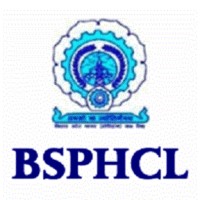
Bihar State Power Holding Company Limited
Bihar State Power Holding Company Limited (or BSPHCL), also known as erstwhile Bihar State Electricity Board (or BSEB) is a state-owned electricity regulation board operating within the state of Bihar in India. Bihar State Electricity Board (BSEB) was established in 1958 as a statutory corporation u
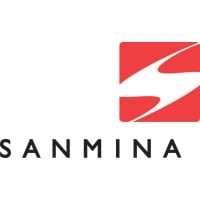
Sanmina
Sanmina Corporation (Nasdaq: SANM) is a leading integrated manufacturing solutions provider serving the fastest-growing segments of the global Electronics Manufacturing Services (EMS) market. Recognized as a technology leader, Sanmina Corporationprovides end-to-end manufacturing solutions, deliverin
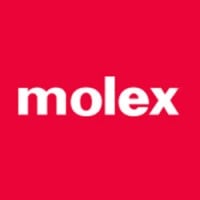
Molex
Molex makes a connected world possible by enabling technologies that transform the future and improve lives. With a presence in more than 40 countries, Molex offers a complete range of connectivity products, services and solutions for the data communications, medical, industrial, automotive and cons
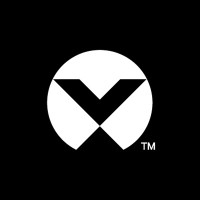
Vertiv
Vertiv (NYSE: VRT) brings together hardware, software, analytics and ongoing services to enable its customers’ vital applications to run continuously, perform optimally and grow with their business needs. Vertiv solves the most important challenges facing today’s data centers, communication networks
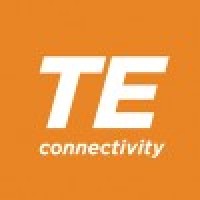
TE Connectivity
TE Connectivity is a global industrial technology leader creating a safer, sustainable, productive, and connected future. Our broad range of connectivity and sensor solutions enable the distribution of power, signal and data to advance next-generation transportation, renewable energy, automated fact

Cairo Electricity Production Company
*Five companies produce electric power in the Arab Republic of Egypt follow to the Egyptian Electricity Holding Company, which is following to Ministry of Electricity and Energy. Cairo electricity production Company contributes by 20% of the total electrical energy produced by the production compa

Frequently Asked Questions (FAQ) on Cybersecurity Incidents
Midea Group CyberSecurity History Information
Total Incidents: According to Rankiteo, Midea Group has faced 0 incidents in the past.
Incident Types: As of the current reporting period, Midea Group has not encountered any cybersecurity incidents.
Total Financial Loss: The total financial loss from these incidents is estimated to be {total_financial_loss}.
Cybersecurity Posture: The company's overall cybersecurity posture is described as Midea Group aspires to the vision of “Bringing Great Innovations to Life”, upholding the Founders’ philosophy of creating a better life through technology. Midea Group has evolved into a global leading technology company specializing in five major business areas: Smart Home Business, Industrial and Building Technologies, Robotics &Automation, and Digital Innovation. Over the past five years, we have invested over $8 billion USD in R&D and developed a global network spanning 33 R&D centers and 43 major production sites across the world. At present, Midea Group’s products and services serve more than 500 million customers in over 200 countries and regions encompassing a brand portfolio containing Little Swan, Toshiba, WAHIN, COLMO, Clivet, Eureka, KUKA, GMCC, Welling, LINVOL, and Wandong. With nearly 200,000 employees globally and more than 40,000 based internationally, Midea Group ranks 277th on the Global Fortune 500 in 2024, marking the 9th consecutive year on the list. The company holds A/A3/A credit ratings from S&P, Moody's, and Fitch respectively. Midea Group places a strong focus on technology leadership, driving innovation across global markets. Through continuous investment in "Technology Leadership, Direct to User, Digital Intelligence Driven, and Global Breakthrough," we advance our leadership in Smart Home and Smart Manufacturing while fostering talent. By providing growth opportunities in a dynamic, global environment, we empower our teams to shape the future of innovation..
Detection and Response: The company detects and responds to cybersecurity incidents through {description_of_detection_and_response_process}.
Incident Details
Incident 1: Ransomware Attack
Title: {Incident_Title}
Description: {Brief_description_of_the_incident}
Date Detected: {Detection_Date}
Date Publicly Disclosed: {Disclosure_Date}
Date Resolved: {Resolution_Date}
Type: {Type_of_Attack}
Attack Vector: {Attack_Vector}
Vulnerability Exploited: {Vulnerability}
Threat Actor: {Threat_Actor}
Motivation: {Motivation}
Incident 2: Data Breach
Title: {Incident_Title}
Description: {Brief_description_of_the_incident}
Date Detected: {Detection_Date}
Date Publicly Disclosed: {Disclosure_Date}
Date Resolved: {Resolution_Date}
Type: {Type_of_Attack}
Attack Vector: {Attack_Vector}
Vulnerability Exploited: {Vulnerability}
Threat Actor: {Threat_Actor}
Motivation: {Motivation}
Common Attack Types: As of now, the company has not encountered any reported incidents involving common cyberattacks.
Identification of Attack Vectors: The company identifies the attack vectors used in incidents through {description_of_identification_process}.
Impact of the Incidents
Incident 1: Ransomware Attack
Financial Loss: {Financial_Loss}
Data Compromised: {Data_Compromised}
Systems Affected: {Systems_Affected}
Downtime: {Downtime}
Operational Impact: {Operational_Impact}
Conversion Rate Impact: {Conversion_Rate_Impact}
Revenue Loss: {Revenue_Loss}
Customer Complaints: {Customer_Complaints}
Brand Reputation Impact: {Brand_Reputation_Impact}
Legal Liabilities: {Legal_Liabilities}
Identity Theft Risk: {Identity_Theft_Risk}
Payment Information Risk: {Payment_Information_Risk}
Incident 2: Data Breach
Financial Loss: {Financial_Loss}
Data Compromised: {Data_Compromised}
Systems Affected: {Systems_Affected}
Downtime: {Downtime}
Operational Impact: {Operational_Impact}
Conversion Rate Impact: {Conversion_Rate_Impact}
Revenue Loss: {Revenue_Loss}
Customer Complaints: {Customer_Complaints}
Brand Reputation Impact: {Brand_Reputation_Impact}
Legal Liabilities: {Legal_Liabilities}
Identity Theft Risk: {Identity_Theft_Risk}
Payment Information Risk: {Payment_Information_Risk}
Average Financial Loss: The average financial loss per incident is {average_financial_loss}.
Commonly Compromised Data Types: The types of data most commonly compromised in incidents are {list_of_commonly_compromised_data_types}.
Incident 1: Ransomware Attack
Entity Name: {Entity_Name}
Entity Type: {Entity_Type}
Industry: {Industry}
Location: {Location}
Size: {Size}
Customers Affected: {Customers_Affected}
Incident 2: Data Breach
Entity Name: {Entity_Name}
Entity Type: {Entity_Type}
Industry: {Industry}
Location: {Location}
Size: {Size}
Customers Affected: {Customers_Affected}
Response to the Incidents
Incident 1: Ransomware Attack
Incident Response Plan Activated: {Yes/No}
Third Party Assistance: {Yes/No}
Law Enforcement Notified: {Yes/No}
Containment Measures: {Containment_Measures}
Remediation Measures: {Remediation_Measures}
Recovery Measures: {Recovery_Measures}
Communication Strategy: {Communication_Strategy}
Adaptive Behavioral WAF: {Adaptive_Behavioral_WAF}
On-Demand Scrubbing Services: {On_Demand_Scrubbing_Services}
Network Segmentation: {Network_Segmentation}
Enhanced Monitoring: {Enhanced_Monitoring}
Incident 2: Data Breach
Incident Response Plan Activated: {Yes/No}
Third Party Assistance: {Yes/No}
Law Enforcement Notified: {Yes/No}
Containment Measures: {Containment_Measures}
Remediation Measures: {Remediation_Measures}
Recovery Measures: {Recovery_Measures}
Communication Strategy: {Communication_Strategy}
Adaptive Behavioral WAF: {Adaptive_Behavioral_WAF}
On-Demand Scrubbing Services: {On_Demand_Scrubbing_Services}
Network Segmentation: {Network_Segmentation}
Enhanced Monitoring: {Enhanced_Monitoring}
Incident Response Plan: The company's incident response plan is described as {description_of_incident_response_plan}.
Third-Party Assistance: The company involves third-party assistance in incident response through {description_of_third_party_involvement}.
Data Breach Information
Incident 2: Data Breach
Type of Data Compromised: {Type_of_Data}
Number of Records Exposed: {Number_of_Records}
Sensitivity of Data: {Sensitivity_of_Data}
Data Exfiltration: {Yes/No}
Data Encryption: {Yes/No}
File Types Exposed: {File_Types}
Personally Identifiable Information: {Yes/No}
Prevention of Data Exfiltration: The company takes the following measures to prevent data exfiltration: {description_of_prevention_measures}.
Handling of PII Incidents: The company handles incidents involving personally identifiable information (PII) through {description_of_handling_process}.
Ransomware Information
Incident 1: Ransomware Attack
Ransom Demanded: {Ransom_Amount}
Ransom Paid: {Ransom_Paid}
Ransomware Strain: {Ransomware_Strain}
Data Encryption: {Yes/No}
Data Exfiltration: {Yes/No}
Ransom Payment Policy: The company's policy on paying ransoms in ransomware incidents is described as {description_of_ransom_payment_policy}.
Data Recovery from Ransomware: The company recovers data encrypted by ransomware through {description_of_data_recovery_process}.
Regulatory Compliance
Incident 1: Ransomware Attack
Regulations Violated: {Regulations_Violated}
Fines Imposed: {Fines_Imposed}
Legal Actions: {Legal_Actions}
Regulatory Notifications: {Regulatory_Notifications}
Incident 2: Data Breach
Regulations Violated: {Regulations_Violated}
Fines Imposed: {Fines_Imposed}
Legal Actions: {Legal_Actions}
Regulatory Notifications: {Regulatory_Notifications}
Regulatory Frameworks: The company complies with the following regulatory frameworks regarding cybersecurity: {list_of_regulatory_frameworks}.
Ensuring Regulatory Compliance: The company ensures compliance with regulatory requirements through {description_of_compliance_measures}.
Lessons Learned and Recommendations
Incident 1: Ransomware Attack
Lessons Learned: {Lessons_Learned}
Incident 2: Data Breach
Lessons Learned: {Lessons_Learned}
Incident 1: Ransomware Attack
Recommendations: {Recommendations}
Incident 2: Data Breach
Recommendations: {Recommendations}
Key Lessons Learned: The key lessons learned from past incidents are {list_of_key_lessons_learned}.
Implemented Recommendations: The company has implemented the following recommendations to improve cybersecurity: {list_of_implemented_recommendations}.
References
Additional Resources: Stakeholders can find additional resources on cybersecurity best practices at {list_of_additional_resources}.
Investigation Status
Incident 1: Ransomware Attack
Investigation Status: {Investigation_Status}
Incident 2: Data Breach
Investigation Status: {Investigation_Status}
Communication of Investigation Status: The company communicates the status of incident investigations to stakeholders through {description_of_communication_process}.
Stakeholder and Customer Advisories
Incident 1: Ransomware Attack
Stakeholder Advisories: {Stakeholder_Advisories}
Customer Advisories: {Customer_Advisories}
Incident 2: Data Breach
Stakeholder Advisories: {Stakeholder_Advisories}
Customer Advisories: {Customer_Advisories}
Advisories Provided: The company provides the following advisories to stakeholders and customers following an incident: {description_of_advisories_provided}.
Initial Access Broker
Incident 1: Ransomware Attack
Entry Point: {Entry_Point}
Reconnaissance Period: {Reconnaissance_Period}
Backdoors Established: {Backdoors_Established}
High Value Targets: {High_Value_Targets}
Data Sold on Dark Web: {Yes/No}
Incident 2: Data Breach
Entry Point: {Entry_Point}
Reconnaissance Period: {Reconnaissance_Period}
Backdoors Established: {Backdoors_Established}
High Value Targets: {High_Value_Targets}
Data Sold on Dark Web: {Yes/No}
Monitoring and Mitigation of Initial Access Brokers: The company monitors and mitigates the activities of initial access brokers through {description_of_monitoring_and_mitigation_measures}.
Post-Incident Analysis
Incident 1: Ransomware Attack
Root Causes: {Root_Causes}
Corrective Actions: {Corrective_Actions}
Incident 2: Data Breach
Root Causes: {Root_Causes}
Corrective Actions: {Corrective_Actions}
Post-Incident Analysis Process: The company's process for conducting post-incident analysis is described as {description_of_post_incident_analysis_process}.
Corrective Actions Taken: The company has taken the following corrective actions based on post-incident analysis: {list_of_corrective_actions_taken}.
Additional Questions
General Information
Ransom Payment History: The company has {paid/not_paid} ransoms in the past.
Last Ransom Demanded: The amount of the last ransom demanded was {last_ransom_amount}.
Last Attacking Group: The attacking group in the last incident was {last_attacking_group}.
Incident Details
Most Recent Incident Detected: The most recent incident detected was on {most_recent_incident_detected_date}.
Most Recent Incident Publicly Disclosed: The most recent incident publicly disclosed was on {most_recent_incident_publicly_disclosed_date}.
Most Recent Incident Resolved: The most recent incident resolved was on {most_recent_incident_resolved_date}.
Impact of the Incidents
Highest Financial Loss: The highest financial loss from an incident was {highest_financial_loss}.
Most Significant Data Compromised: The most significant data compromised in an incident was {most_significant_data_compromised}.
Most Significant System Affected: The most significant system affected in an incident was {most_significant_system_affected}.
Response to the Incidents
Third-Party Assistance in Most Recent Incident: The third-party assistance involved in the most recent incident was {third_party_assistance_in_most_recent_incident}.
Containment Measures in Most Recent Incident: The containment measures taken in the most recent incident were {containment_measures_in_most_recent_incident}.
Data Breach Information
Most Sensitive Data Compromised: The most sensitive data compromised in a breach was {most_sensitive_data_compromised}.
Number of Records Exposed: The number of records exposed in the most significant breach was {number_of_records_exposed}.
Ransomware Information
Highest Ransom Demanded: The highest ransom demanded in a ransomware incident was {highest_ransom_demanded}.
Highest Ransom Paid: The highest ransom paid in a ransomware incident was {highest_ransom_paid}.
Regulatory Compliance
Highest Fine Imposed: The highest fine imposed for a regulatory violation was {highest_fine_imposed}.
Most Significant Legal Action: The most significant legal action taken for a regulatory violation was {most_significant_legal_action}.
Lessons Learned and Recommendations
Most Significant Lesson Learned: The most significant lesson learned from past incidents was {most_significant_lesson_learned}.
Most Significant Recommendation Implemented: The most significant recommendation implemented to improve cybersecurity was {most_significant_recommendation_implemented}.
References
Most Recent Source: The most recent source of information about an incident is {most_recent_source}.
Most Recent URL for Additional Resources: The most recent URL for additional resources on cybersecurity best practices is {most_recent_url}.
Investigation Status
Current Status of Most Recent Investigation: The current status of the most recent investigation is {current_status_of_most_recent_investigation}.
Stakeholder and Customer Advisories
Most Recent Stakeholder Advisory: The most recent stakeholder advisory issued was {most_recent_stakeholder_advisory}.
Most Recent Customer Advisory: The most recent customer advisory issued was {most_recent_customer_advisory}.
Initial Access Broker
Most Recent Entry Point: The most recent entry point used by an initial access broker was {most_recent_entry_point}.
Most Recent Reconnaissance Period: The most recent reconnaissance period for an incident was {most_recent_reconnaissance_period}.
Post-Incident Analysis
Most Significant Root Cause: The most significant root cause identified in post-incident analysis was {most_significant_root_cause}.
Most Significant Corrective Action: The most significant corrective action taken based on post-incident analysis was {most_significant_corrective_action}.
What Do We Measure?
















Every week, Rankiteo analyzes billions of signals to give organizations a sharper, faster view of emerging risks. With deeper, more actionable intelligence at their fingertips, security teams can outpace threat actors, respond instantly to Zero-Day attacks, and dramatically shrink their risk exposure window.
These are some of the factors we use to calculate the overall score:
Identify exposed access points, detect misconfigured SSL certificates, and uncover vulnerabilities across the network infrastructure.
Gain visibility into the software components used within an organization to detect vulnerabilities, manage risk, and ensure supply chain security.
Monitor and manage all IT assets and their configurations to ensure accurate, real-time visibility across the company's technology environment.
Leverage real-time insights on active threats, malware campaigns, and emerging vulnerabilities to proactively defend against evolving cyberattacks.




